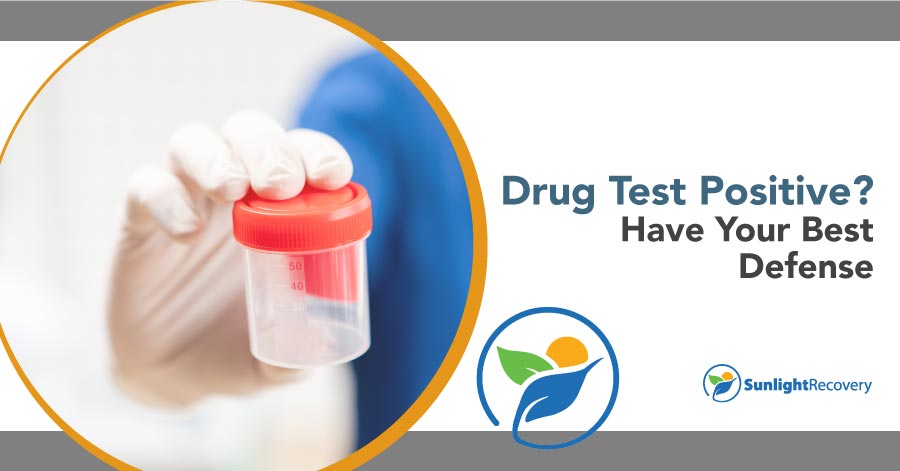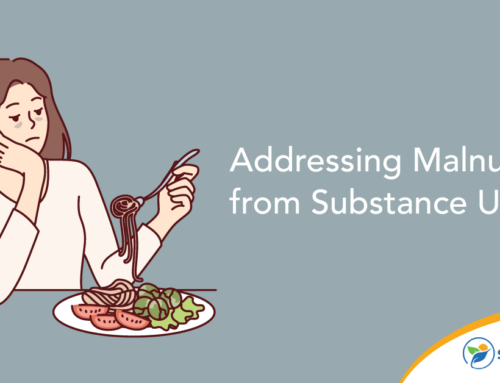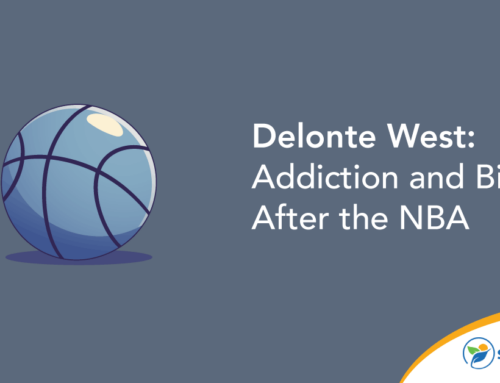Updated June 13, 2023
Many employers use drug screening to maintain safe and productive work environments. If an employee shows up to work under the influence, it can make their coworkers uncomfortable and put them at risk. State laws vary regarding drug screening practices and what steps an employer can take if someone receives a positive result. If you’re worried about failing a drug test, it’s important to know your options.
Explore the best defense for positive drug test results and what your rights are when it comes to medical care. Understanding how the law protects you and getting the help you need for drug use can lead to a healthier lifestyle and more success in the workplace.
General Steps of Taking a Drug Test
Drug testing is a prevention technique used to promote a drug-free workplace. Employers must follow local, state and federal laws when conducting drug tests. A trained collector who comes to the workplace usually does the tests, or employees have to go to a certified lab where specimens, such as a urine sample, are collected.
Drug screenings are used to identify five categories of drugs, including:
- Amphetamines
- Cocaine
- Marijuana
- Opiates
- Phencyclidine
Additional categories can include MDMA, hydrocodone, barbiturates, benzodiazepines or ethanol. A few reasons why an employer may request a drug test from an employee include the following:
Pre-Employment Screening
Passing a drug test may be a condition of employment, along with successfully completing an interview or a background check. While an employer can’t discriminate against you for past drug use, they can make passing a drug test a requirement for the employment process. Failing a drug test can result in not being hired.
Current Employee Screening
Some employers conduct random drug testing of their current employees. If an employee is showing visible signs of being unfit for the job or a pattern of unsafe work behavior, the employer may suspect the employee is under the influence of something and decide to issue a test.
Including drug tests as part of an annual physical exam is another reason employers may test current employees. However, constitutional rights require employers to inform employees that drug screening is part of the annual exam. In any case, drug tests should be administered fairly to all employees.
Random Drug Testing
An employer may use an unpredictable selection process to screen their employees to deter illegal drug use. While random drug testing isn’t outright illegal, there have been lawsuits against employers for invasion of privacy, defamation, discrimination or wrongful discharge. No laws require adult workers to submit to mandatory drug testing, and every state has its own requirements for how and when employers can drug test employees.
Can You Be Fired for a Failed Drug Test?
States laws vary regarding what steps an employer can take if an employee fails a drug test. If a job offer is contingent on successfully passing a drug test, that offer will probably be rescinded if the employee fails. For current employees, some states have protections in place. In Vermont and Minnesota, employers can’t fire employees who fail a drug test but agree to attend a rehabilitation program. Other states allow an employee to contest the results and take the test again or require an employer to notify employees when serious consequences are issued for drug test failure.
Whether an employer can fire you also depends on the type of job. Some federal contractor positions may require a very specific kind of drug screening according to federal guidelines. Employees may be fired in certain situations if they don’t pass the test. Jobs that are safety-specific may also be subject to termination for not passing a drug test.
Are Drug Tests Protected by HIPAA?
HIPAA requires any medical information regarding employees to be kept confidential between the provider and the patient. This is meant to protect the patient’s privacy, which means some testing facilities find it tricky to relay drug screening information to employers. Under HIPAA, an organization has limited access to drug testing results and is required to keep that information confidential.
Usually, only certain employees or departments have access to this information, such as human resources, supervisors or anyone in a management position that directly oversees the employee. They’re also legally required to keep that information private. That said, what happens if your drug test is positive? You still have rights, and your information must be kept confidential, no matter what the test results are.
How Does Medical Marijuana Fit In?
Laws revolving around medical marijuana aren’t as widespread as illicit drug use or alcohol. A growing number of states have adopted medical marijuana laws, although there’s no federal law that makes exceptions from the current drug prohibition policy. Employees who’ve been prescribed medical marijuana for a chronic condition or illness are exempt from criminal prosecution in states where the drug has been medically legalized.
Medical marijuana laws vary drastically across states. However, no state allows employees to use marijuana on the job, even for medicinal purposes.
Best Defense for Positive Drug Test Results
If you’re wondering how to explain failed drug test results, be open and honest with your employer. Your best defense for positive drug test results is to be transparent and consider asking for help. Many private employers are usually willing to assist their employees with drug or alcohol rehabilitation. Enrolling in treatment can help you find the care you need and may save you from losing your job.
Filing for the Family Medical Leave Act is another option. This law grants you immediate assistance at a licensed treatment facility for up to 12 weeks. During that time, your employer can’t terminate you or pull your benefits. However, they aren’t required to continue paying you.
Entering rehab can help you kick any substance problem you’re struggling with and return to work in a better state of mind. This can benefit both your health and career in the long run.
Best Defense for Positive Drug Test
The best way to protect yourself when you’re required to take a drug screening test is to be upfront about all the medications and substances you take that could lead to a positive or false positive result. However, avoid jumping to conclusions about what might happen after failing a drug screening test. If you know you weren’t using illicit drugs or substances before the screening, dispute the drug test.
What is your best defense for a positive drug test?
It would be best if you told your employer the truth. The drug test results will show the substances found, so there’s no hiding that. There’s also no benefit in lying about your drug or alcohol use. If you have a problem, asking for help may be the best defense available to you. Why? Most employers have a vested interest in retaining employees.
Likewise, if the employer isn’t under a government contract or part of the government, the company may agree to help you get the drug and alcohol treatment you need to get clean.
Enrolling in a drug and alcohol rehab program may offer you some job protection. While you’re in treatment, you can’t be fired or lose your company benefits. (According to protections under the Family Medical Leave Act (FMLA), you’re allowed up to 12 weeks of treatment in a licensed drug and alcohol treatment facility.)
Keep in mind that employers are not required to continue employee pay during this time. That’s why it’s recommended to file for FMLA assistance right away. The 12 weeks will provide time to detox from substances and begin treatment. After completing the allotted treatment time, you may be fully capable of returning to work.
How to Dispute a False Positive Drug Test
Here’s how to dispute a false positive drug test. If your test results show a false positive and you know you aren’t taking substances that would warrant a positive result, tell your employer that you are disputing the results and would like a re-test.
Typically, during a re-test, the testing organization will conduct the new test with your original sample but using more advanced testing methods. The more advanced testing allows for separating or isolating the substances that could interfere with the drug test results. After separating these substances, your samples can be submitted to a second drug confirmation test.
What if you were taking something that could cause a false positive test result? If this is the case, the drug testing lab can conduct a different test to determine that you haven’t taken any drugs the test is searching for. The testing requires the use of sophisticated equipment. This method is expensive and not the first line of testing for employers.
Candor and honesty with your employer can pay off here. It would be best to let the employer know what you’ve been taking that could be responsible for the false-positive drug test. This will help your cause and potentially convince your employer to keep you in your job and give you another chance.
The confirmatory tests may include the following:
- High-performance liquid chromatography test
- Gas chromatography-mass spectrometry test
What If the Confirmation Test Shows Positive?
Don’t give up hope if the confirmation results are positive for the presence of tested drugs. You may wish to consult an attorney if you are sure that the test is a false positive. The attorney will be able to advise you about how to dispute a false positive drug test.
How to Fight a False Positive Drug Test
While an employer can fire individuals who fail drug tests, limitations exist. Some employees work in safety-sensitive jobs where being drug-compromised could pose an immediate threat to others’ safety. Failure to pass mandatory specific drug tests can result in an employee’s job termination if the employer is a federal contractor or part of the government.
Jobs in some states have employment clauses describing the positions as “at-will employment.” Companies often have specific drug tests they require prospective and current employees to take, but they must always comply with appropriate state laws. With at-will employment, employers can fire employees who don’t meet the company’s standards stipulated in the employment contract.
So, how do you fight a false positive drug test? What you’re able to do depends on the laws of your state. If the employer is expressly granted legal rights to terminate employment for employees failing drug tests, it may be impossible to avoid getting fired.
Seek Help for a Drug or Alcohol Addiction
If your drug or alcohol use indicates a larger problem, seeking treatment can get your life back on track. Sunlight Recovery is here to help. Contact us today by calling (888) 402-3647 to speak with a professional about available treatment options to beat your addiction and reclaim your life.







